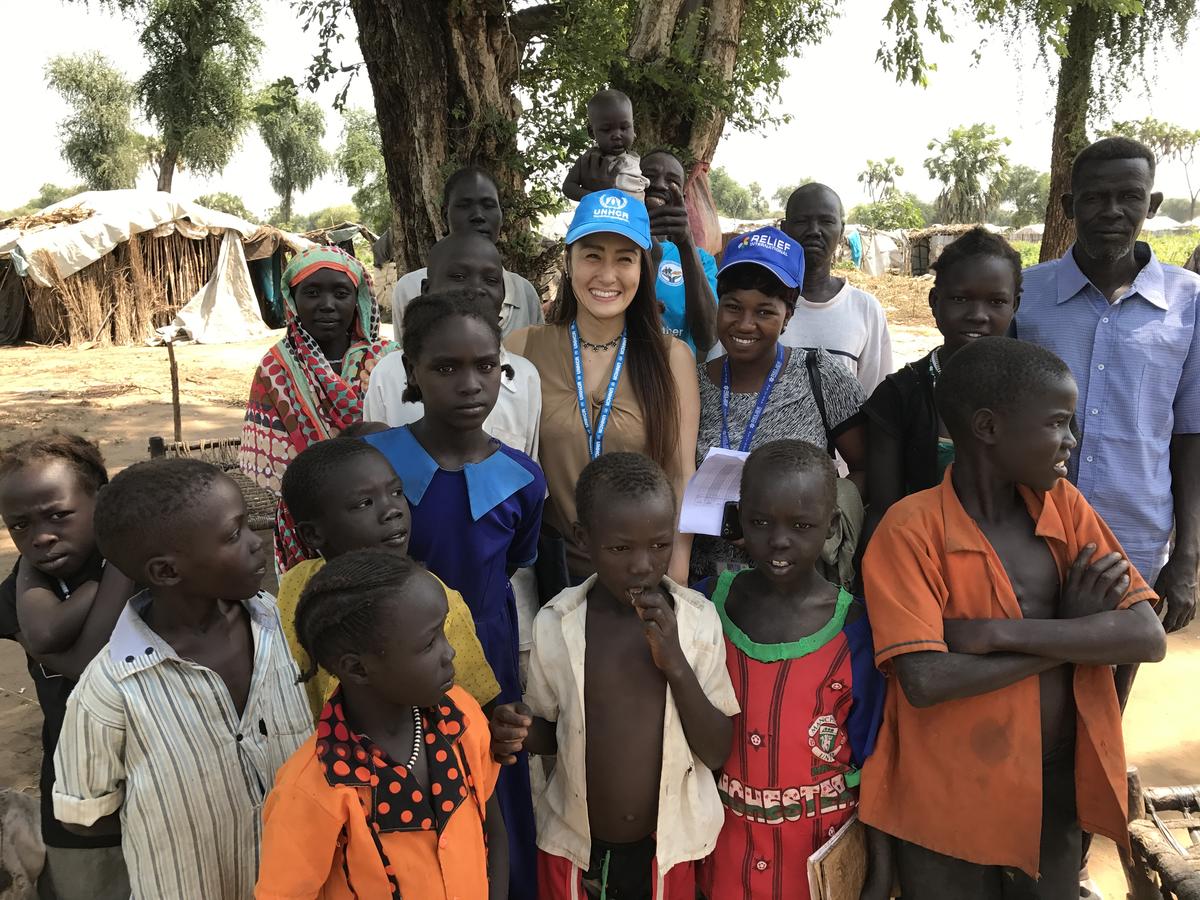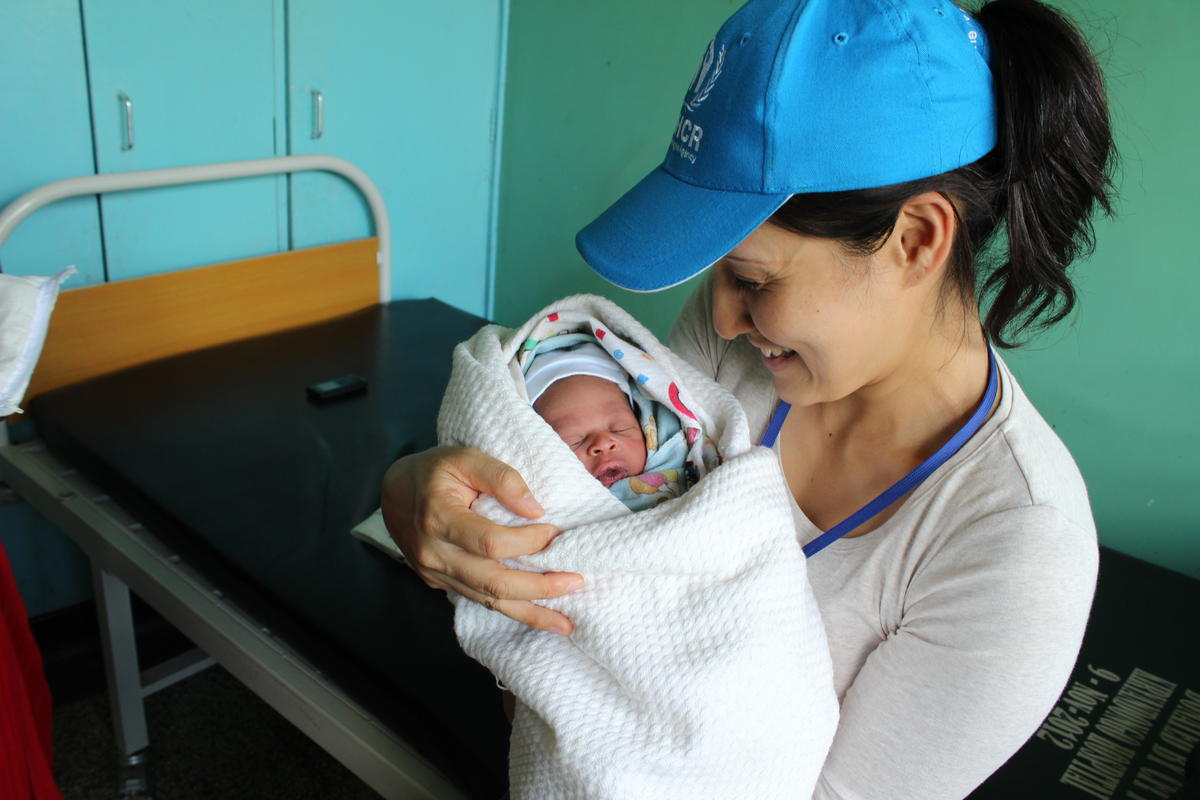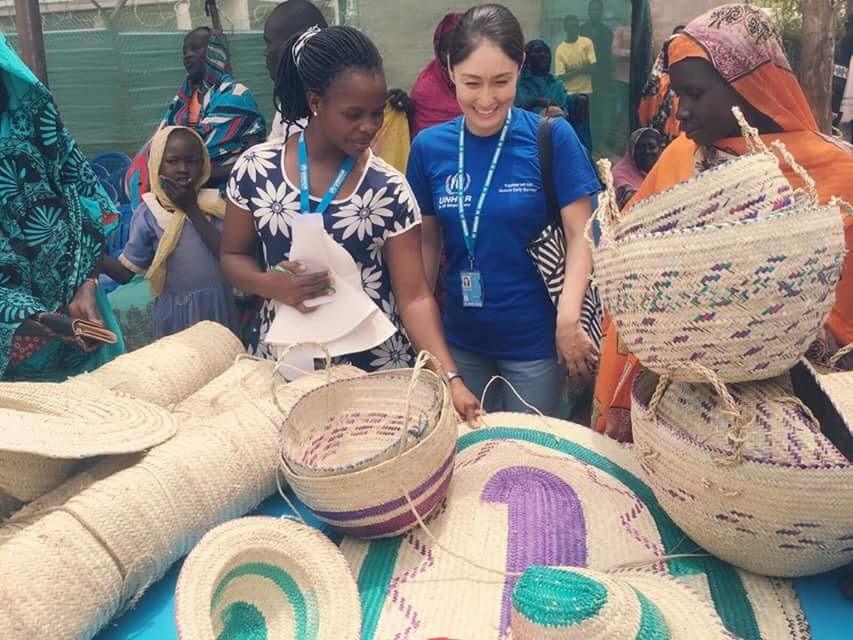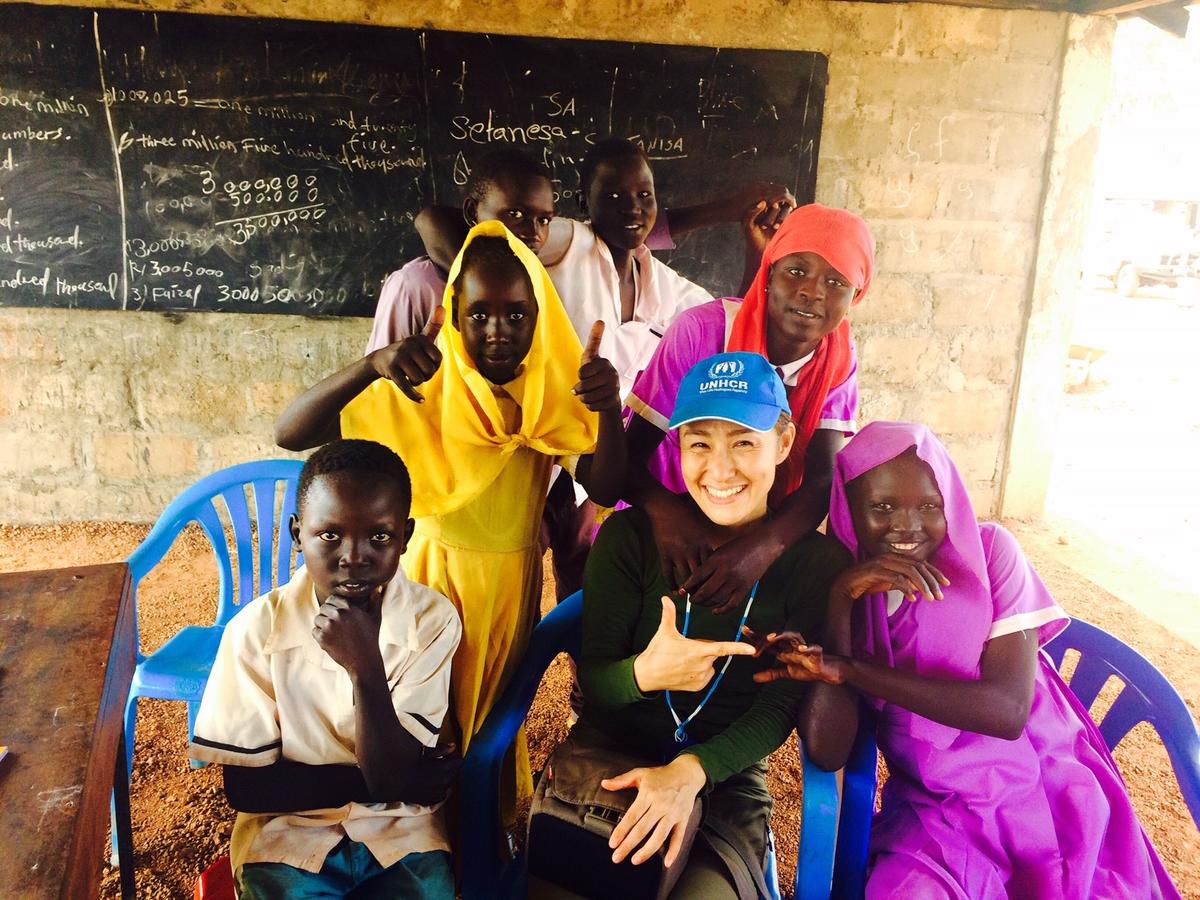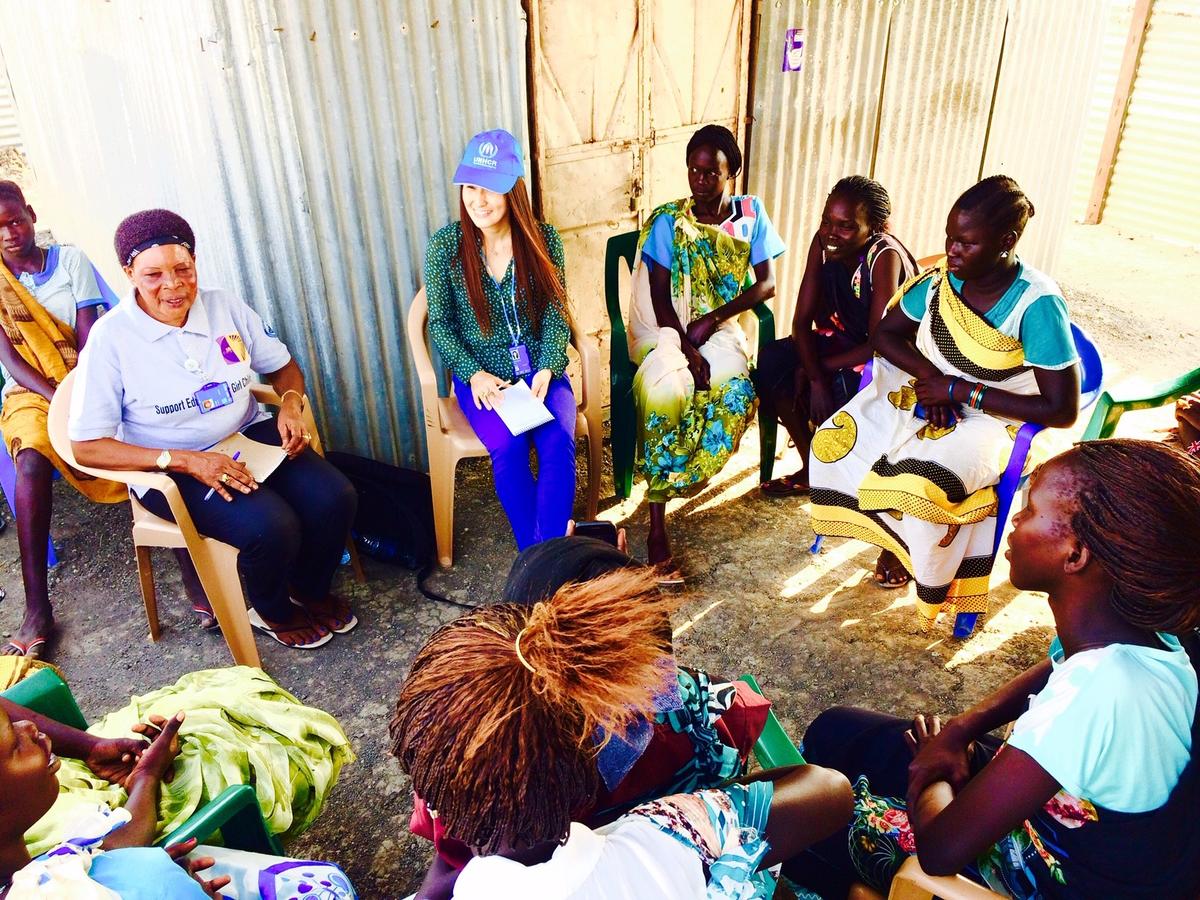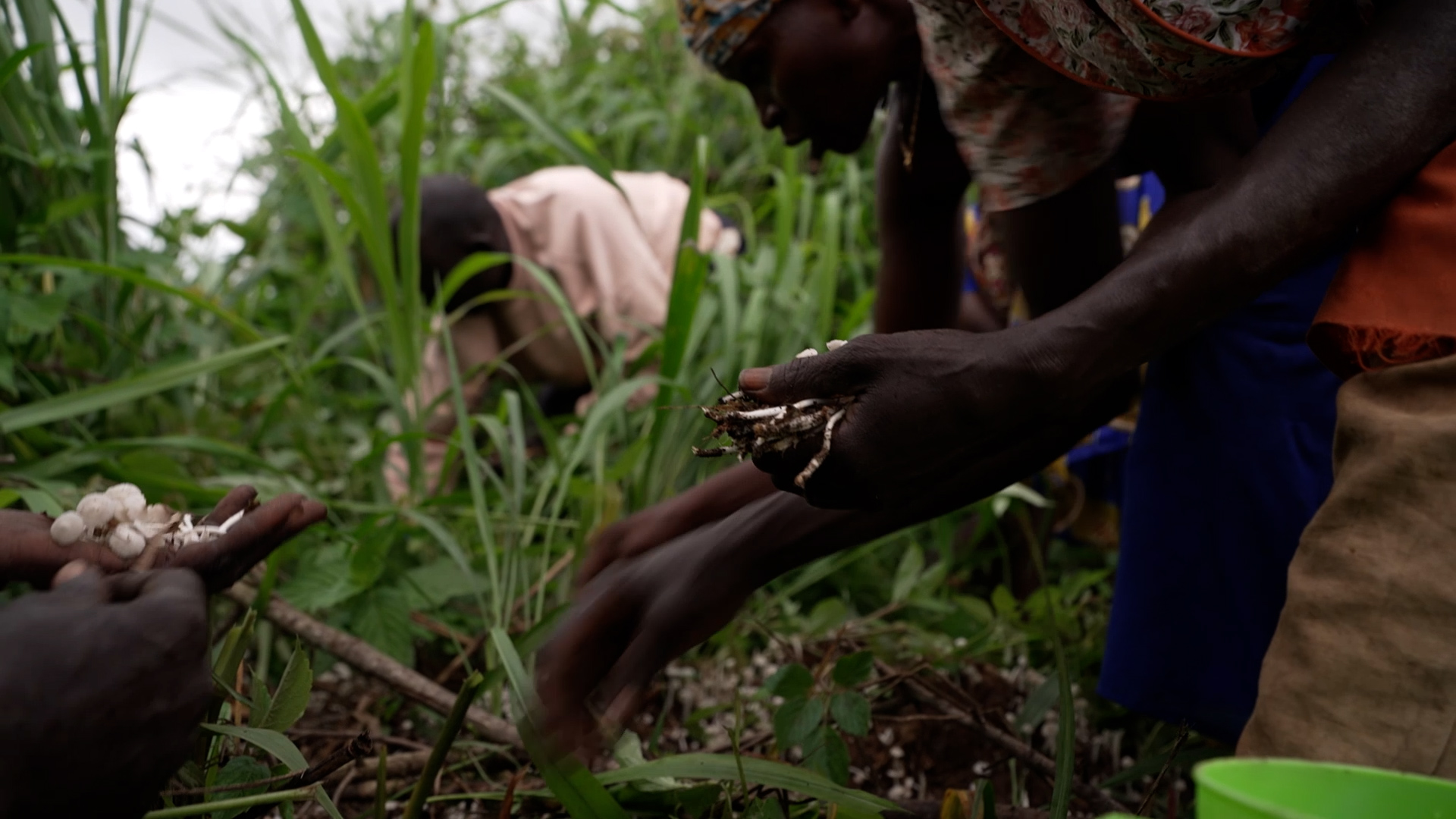'Gender-based violence never got enough attention'
Name: Keiko Odashiro from Kobe, Japan
Job title: Ethics officer focusing on protection from sexual exploitation and abuse. More than five years with UNHCR, working in Uganda, South Sudan and Switzerland. Currently based in Geneva.
Why did you become an aid worker?
Before going to college, I went backpacking through Southeast Asia.
At the temple complex at Angkor Wat in Cambodia, I met a girl, aged about six, who was begging in the main street. She had no hands and no feet and had probably been maimed by her parents. When she saw me, she gave me a big, beautiful smile. I felt she is trying to live, she is trying her best. I thought, ‘This girl really has strength and potential’. Meeting her moved me. I felt I wanted to help.
Later in my travels, I met a Japanese aid worker who had built a school in Phnom Penh for children who couldn’t afford an education. He was doing something constructive and I thought, ‘This is what I want to do’. It made me want to work in aid.
After I graduated, I co-founded an NGO working with children and survivors of human trafficking in the Northern Mariana Islands, in the western North Pacific Ocean. I started with UNHCR in 2013 in Uganda. I subsequently worked in South Sudan, before taking up my current post in Geneva.
What are the most rewarding/challenging things about your job?
I was hired by UNHCR specifically to work on protection from sexual exploitation and abuse, or PSEA. That is a positive sign. This is something that we need to do more on.
We operate in 128 countries around the world, and each office is asked to appoint a senior focal point on PSEA, to move the agenda forward. To make a difference.
Every day, we are working to build the trust of the refugees that we work with. Sexual exploitation and abuse is not tolerated as it is a betrayal of the people of concern that we work with. We need to make sure that they know it is wrong if they are asked for sexual favours in exchange for registration, or for aid items, or the promise that they are going to be resettled. They need to know their rights. They also need to know the mechanism to report abuse to us, so that we can take appropriate action.
Imagine if you depend on aid workers or NGOs for your lifeline. You receive food, you are given shelter, and your basic needs are met by them. When abuse occurs, you have to think, ‘Will reporting it help me or my family, or will it do me more harm?’
Most of the reports we receive involve women and young girls. We also work with lesbian, gay, bi- and trans-sexual people.
One of the challenges we have is getting some groups to report abuse, like men and boys. Male survivors are not coming forward. If you grow up in the cultural context in which men don’t cry, then being abused brings not just shame on you, but on your whole family. We need to change that culture. We are facing a big wall. You can’t really break it down in a day, but we are making progress, and we need to have faith that we can make a difference.
This is the year of Me Too. Gender-based violence never got enough attention. All the media attention with Me Too is positive. We need to ride on that.
What was your worst day at work?
We had a huge issue with child marriage in South Sudan.
A young girl of about 12 years old was kidnapped on the street, raped and then, days later, returned to her parents. She was in very, very bad shape. She was pregnant, bleeding and in need of immediate medical attention, but her parents would not let her go to the clinic.
We tried to reach out to the family but they did not want to deal with us. It was further complicated because they were armed, which is common in the north of the country. They said, ‘This is not your issue, it’s our child’.
We wanted to get her medical care. We also had a case management team, who could have made sure that she was recovering and going to school. As it is, we don’t know if she died, or if she survived.
At that age, 12 years old, getting pregnant means your childhood ends there, because you become a mother. Your education stops, your options become very limited and there is a higher likelihood that you will be a victim of domestic violence.
I felt really helpless. I kept asking myself why. Why did this have to happen to a child? That girl could become a doctor. That girl could save many people. That girl could be a teacher, a role model. That girl could be an engineer. That girl could become the president of the country.
What was your best day at work?
Tackling sexual and gender-based violence requires a behavioural change, a change of mindset. When I started working in South Sudan, it was taboo to talk about rape and taboo to talk about child marriage, but that is slowly changing.
There was a day in South Sudan when I realized that what we were doing was having an impact, when a girl escaping a forced marriage came running to us for help.
She was about 13 or 14. First, she ran to the community leader’s home, who referred her to UNHCR. With the help of our national staff, who are leading that process of change, we arranged mediation with the family.
The girl subsequently got into school and attended mediation meetings with her parents and community leaders. Then one day she stood up in a meeting and said, in a clear voice in English, in front of everyone, ‘I don’t want to get married’. We were crying. The community leader was crying. I just thought, ‘Yes! She did it!’
She is continuing in school. Her family agreed that she should decide at 18 whether she gets married or not.
The word then got around by word of mouth. Other girls in her situation had a sort of network. They knew where to go to get help. And then more girls started coming to us.
How do I feel about that? I think it’s great.
UNHCR, the UN Refugee Agency, works in 128 countries helping men, women and children driven from their homes by wars and persecution. Our headquarters are in Geneva, but most of our staff are based in the field, helping refugees. This profile is part of a series highlighting our staff and their work.



